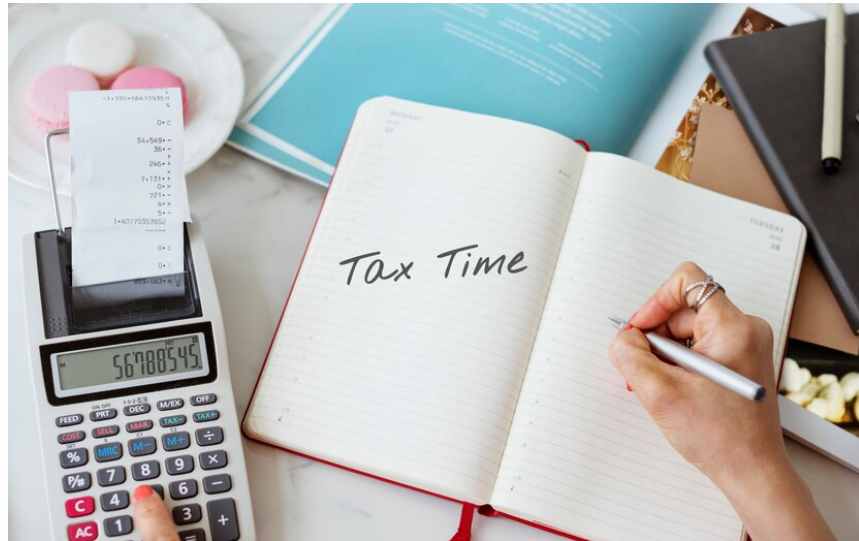
What is capital gain example?
An example of a capital gain would be if you purchased 100 shares of a stock for $50 each, or a total of $5,000. If you then sold those 100 shares for $60 each, or a total of $6,000, your capital gain would be $1,000.
To calculate your capital gain, you would subtract the original cost of the shares ($5,000) from the selling price ($6,000):
Capital Gain = $6,000 - $5,000 = $1,000
This $1,000 is your capital gain and may be subject to capital gains tax, depending on the holding period and your tax jurisdiction.
It's important to note that capital gains can also occur on other types of assets, such as real estate, artwork, or collectibles. The calculation of capital gains on these assets may be more complex, and it's always a good idea to consult with a financial advisor or tax professional for guidance.
Capital gain refers to any gain or profit that is earned by the individual from the sale of a capital asset. The profit that arises from the sale of the capital asset is taxed under the head of “Income from Capital Gain”. Capital gains tax does not apply to the inherited property, as there is only a transfer of ownership and no sale. Any asset which is received as a gift by way of will or inheritance is exempted from the Income Tax Act 1961. However, Capital gain Tax will be applicable if the individual who inherits the asset decides to sell it.
The tax that is charged on the gains earned from the selling of capital assets is known as capital gains tax. The capital assets are generally categorized into two categories i.e. short-term capital assets and long-term capital assets.
How capital gain is calculated?
Capital gain is the profit you make when you sell an asset for more than you paid for it. It is calculated as the difference between the selling price of the asset and its cost basis.
Here's the formula to calculate capital gain:
Capital Gain = Selling Price - Cost Basis
The cost basis is the original price you paid for the asset, plus any additional costs associated with purchasing or owning the asset, such as brokerage fees or improvement costs.
It's important to keep accurate records of your cost basis, as this information is required to calculate your capital gain. If you hold the asset for more than one year before selling it, you will generally be subject to long-term capital gains tax rates, which are usually lower than the rates for short-term capital gains. If you hold the asset for less than one year, you will generally be subject to short-term capital gains tax rates.
It's also worth noting that capital gains can be offset by capital losses, which occur when you sell an asset for less than you paid for it. You can use capital losses to offset capital gains and reduce your tax liability.
How much capital gain is tax free in India?
In India, long-term capital gains on the sale of equity shares and equity-oriented mutual funds are tax-free if the gains are less than Rs 1 lakh in a financial year. Long-term capital gains refer to gains made on the sale of an asset held for more than 12 months.
If the long-term capital gains are greater than Rs 1 lakh, they are taxed at 10% without the benefit of indexation. Indexation is a method of adjusting the cost of an asset for inflation, which can lower the tax liability on capital gains.
Short-term capital gains, which are gains made on the sale of an asset held for 12 months or less, are taxed at the normal income tax rate of the individual.
It's important to note that these tax rules are subject to change and it's always a good idea to consult with a tax professional for up-to-date information and to understand how the tax laws may impact your specific financial situation.
Reason for bifurcation of capital gains into long-term and short-term:
What is the tax rate on capital gains for 2022?
The taxability of capital gains depends on the nature of gain, i.e., whether short-term or long-term. Hence, to determine the taxability, capital gains are to be classified into short-term and long-term. In other words, the tax rates for long-term capital gain (10%) and short-term capital gain (15%) are different.
EXAMPLE: Mr. A purchased a residential house in January 2020 for Rs. 84,00,000. He sold the house in April 2020 for Rs. 90,00,000. In this case, the residential house is a capital asset for Mr. A, and, hence, the gain of Rs. 6,00,000 arising on account of the sale of the residential house will be treated as capital gains and will be charged to tax under the head “Capital Gains”.
EXAMPLE: Mr. B is a property dealer. He purchased a flat for resale. The flat was purchased in January 2021 for Rs. 84,00,000 and sold in August 2022 for Rs. 90,00,000. In this case, Mr. B is dealing in properties as his ordinary business. Hence, flat so purchased by him would form part of the stock-in-trade of the business. In other words, for Mr. B flat is not a capital asset and, hence, a gain of Rs. 6,00,000 arising on account of the sale of the flat will be charged to tax as business income and not as capital gains.
Meaning of short-term capital assets and long-term capital assets For taxation, capital assets are classified into two categories as given :
EXAMPLE: (1) Mr. A is a salaried employee. In April 2020 he purchased gold and sold the same in December 2021. In this case, gold is a capital asset for Mr. A. He purchased gold in April 2020 and sold it in December 2021, i.e., after holding it for a period of fewer than 36 months. Hence, gold will be treated as Short Term Capital Asset.
EXAMPLE: (2) Mr. B is a salaried employee. In April 2018 he purchased gold and sold the same in August 2021. In this case, gold is a capital asset for Mr. B. He purchased gold in April 2018 and sold it in August 2021, i.e., after holding it for more than 36 months. Hence, gold will be treated as Long Term Capital Asset.
EXAMPLE: (3) Mr. A is a salaried employee. In April 2021, he purchased equity shares of SBI Ltd. (listed in BSE) and sold the same in January 2022. In this case, shares are capital assets for Mr. A. He purchased shares in April 2021 and sold them in January 2022, i.e., after holding them for fewer than 12 months. Hence, shares will be treated as Short Term Capital Assets.
EXAMPLE: (4) Mr. B is a salaried employee. In April 2020 he purchased equity shares of SBI Ltd. (listed in BSE) and sold the same in December 2021. In this case, shares are capital assets for Mr. B. He purchased shares in April 2020 and sold them in December 2021, i.e., after holding them for more than 12 months. Hence, shares will be treated as Long Term Capital Assets.
EXAMPLE: (5) Mr. P is a salaried employee. In September 2019, he purchased unlisted shares of ABC ltd. and sold the same in May 2020. In this case, shares are sold in the assessment year 2021-22. Hence, the period of holding for unlisted shares is to be considered as 24 months instead of 36 months. Mr. P purchased shares in September 2019 and sold them in May 2021, i.e. after holding them for fewer than 24 months. Hence, shares will be treated as Short Term Capital Assets.
(6) Mr. B is a salaried employee. In September 2019, he purchased a house and sold the same in May 2021. In this case, the house is sold in the assessment year 2022-23. Hence, the period of holding for immovable property is to be considered 24 months instead of 36 months. Mr. A purchased a house in September 2019 and sold them in May 2021, i.e. after holding them for fewer than 24 months. Hence, the houses will be treated as Short Term Capital Assets.
The meaning of short-term capital gain and the long-term capital gain arising on the sale of a short-term capital asset is termed short-term capital gain and the capital gain arising on transfer of the long-term capital asset is termed a long-term capital gain. However, there are a few exceptions to this rule, like gain on depreciable assets is always taxed as a short-term capital gain.
EXAMPLE: In January 2022 Mr. P sold his residential house property which was purchased in May 2003. Capital gain on such a sale amounted to Rs. 8,40,000. In this case, the house is sold after holding it for more than 24 months, and, hence, a capital gain of Rs. 8,40,000 will be charged to tax as Long Term Capital Gain.
EXAMPLE: In April 2021 Mr. Q sold his residential house property which was purchased in May 2018. Capital gain on such a sale amounted to Rs. 8,40,000. In this case, the house property is sold after holding for fewer than 24 months and, hence, a gain of Rs. 8,40,000 will be charged to tax as Short Term Capital Gain.
How can I save money on capital gains tax?
There are several ways to potentially save money on capital gains tax, including the following:
Hold onto the asset for a longer period of time: Long-term capital gains, which are gains made on the sale of an asset held for more than 12 months, are typically taxed at a lower rate than short-term capital gains, which are gains made on the sale of an asset held for 12 months or less.
Use capital losses to offset capital gains: If you have capital losses from the sale of another asset, you can use those losses to offset capital gains from the sale of another asset. This can help reduce your overall capital gains tax liability.
Use tax-advantaged accounts: Some types of investment accounts, such as individual retirement accounts (IRAs) and 401(k)s, offer tax benefits that can help reduce your capital gains tax liability. For example, investments held in a traditional IRA grow tax-free until you withdraw the funds in retirement.
Invest in tax-free municipal bonds: Municipal bonds are debt securities issued by state and local governments. Interest earned on these bonds is typically exempt from federal income tax, and in some cases, state and local taxes as well.
Consider tax-efficient investments: Some types of investments, such as exchange-traded funds (ETFs) and index funds, have lower turnover and generate fewer capital gains than actively managed funds, which can help reduce your capital gains tax liability.
It's important to keep in mind that tax laws are subject to change and can vary by jurisdiction, so it's always a good idea to consult with a financial advisor or tax professional for up-to-date information and guidance on how to minimize your capital gains tax liability.
How do I avoid capital gains tax?
Section 54 - Investing in Another House Property to Get Exemption on Sale of Existing House Property
A individual made the decision to move for a variety of reasons, so he sold his old house and used the funds to purchase a new one. The seller in this instance wanted to buy a new home that suited his needs rather than make money from the sale of the old one. If the seller was required to pay income tax on capital gains from the sale of an old home, it would be difficult for him. There is relief from such hardship under Section 54.
Taxpayers who sell their principal residence and then buy another residence are given relief under Section 54. Here, we go over the specific guidelines in this regard.
The following requirements must be satisfied in order to receive Section 54's benefits.
- Individuals and HUFs are the only entities eligible for the Section 54 benefit.
- It should be a long-term capital asset, such as a residential house property.
- The taxpayer must purchase a new residential property within a year of selling the old one, sell the old one within two years of selling the new one, or construct a new residential property within three years of selling the old one. The duration of construction or acquisition as part of a compulsory acquisition will be established by the date of compensation receipt (additional or original ).
FAQs on Capital Gains Tax in India:
1. What is Capital Gains Tax?
Capital Gains Tax is a tax imposed on the profit earned from the sale of capital assets such as property, stocks, or other investments. In India, it is categorized as Short-Term Capital Gains (STCG) or Long-Term Capital Gains (LTCG) based on the holding period of the asset.
2. What are Short-Term Capital Gains (STCG) and Long-Term Capital Gains (LTCG)?
STCG: Gains arising from the sale of assets held for a period of up to 36 months (for immovable property) or 12 months (for other assets) are considered short-term. Tax rates for STCG are typically higher than LTCG.
LTCG: Gains from the sale of assets held for more than the specified period are categorized as long-term. The tax rates for LTCG are generally lower than STCG.
3. Which Assets Are Subject to Capital Gains Tax in India?
Capital Gains Tax is applicable to the sale of various assets, including real estate, stocks, mutual funds, gold, and other investments. The tax implications vary based on the type of asset and the holding period.
4. How is Capital Gains Tax Calculated?
The calculation depends on the type of capital gain. For STCG, the gain is added to the total income and taxed at the applicable slab rates. For LTCG, the gain is taxed at specific rates, and individuals may also have the option to index the cost of acquisition.
5. Are There Any Exemptions Available?
Yes, exemptions are available under certain conditions. For example, exemptions may apply if the capital gains are reinvested in specified bonds, or if the gains are from the sale of a residential property and invested in another property.
6. How to Save on Capital Gains Tax?
Utilizing exemptions, investing in specified instruments like Equity-Linked Savings Schemes (ELSS), or considering tax-saving investments can help in reducing the overall tax liability on capital gains.
7. Do NRIs (Non-Resident Indians) Pay Capital Gains Tax in India?
Yes, NRIs are subject to capital gains tax in India on income arising from the transfer of capital assets. However, the tax rates and exemptions may vary for NRIs.
8. What is the Importance of the Indexation Benefit in LTCG?
Indexation allows adjusting the purchase price of an asset based on inflation, reducing the taxable capital gains. This benefit is particularly significant for long-term capital gains on assets like real estate.
9. How and When to File Capital Gains Tax Returns in India?
Capital gains need to be reported in the income tax return. Individuals must file their tax returns by the specified due date, and online filing is often the preferred method.
10. What Happens in Case of Losses from Capital Transactions?
Capital losses can be set off against capital gains, reducing the overall tax liability. Any unabsorbed losses can be carried forward to subsequent years for set-off.

Author : Uttam Bisht
14 February, 2024 | 11:33 PM
Mr. Uttam Bisht is a partner with the Delhi Branch of the firm. He has more than 8 years of experience and specializes in Statutory Audit. Expertise in Tax audit of various enterprises. Extpertise internal audit of Private enterprises. Audit planning through business understanding, preliminary analytical procedures, determining materiality levels, and preparation of audit program and pre-audit checklist . He is well conversant with the auditing standards issued by ICAI. .
Tags
Recent Blogs

06 February, 2026 | 07:28 AM
Decoding Union Budget 2026

13 May, 2025 | 07:42 AM
Top 5 Tips for Filing ITR 4 Easily

08 May, 2025 | 01:09 AM
Simple Guide to Filing ITR1 Sahaj

30 April, 2025 | 05:51 AM
Mortgage Rates Today

26 April, 2025 | 10:23 PM
How Bank's are scamming you - Fixed vs Reducing Rate

02 March, 2025 | 05:32 AM
15 Benefits of ITR Filing
Popular Blogs

14 February, 2024 | 11:43 PM
Top 15 ITR Filing Documents

21 March, 2024 | 12:29 AM
The Road to Financial Freedom: Leveraging Tax Services for Long-Term Success

27 February, 2024 | 11:20 PM
Why Filing ITR with No Income is Smart

14 February, 2024 | 11:39 PM
21 Ways to Save Tax From Salary

10 October, 2024 | 10:15 PM
Exploring the 15 Financial Websites You Should Bookmark Right Now

14 February, 2024 | 11:35 PM
